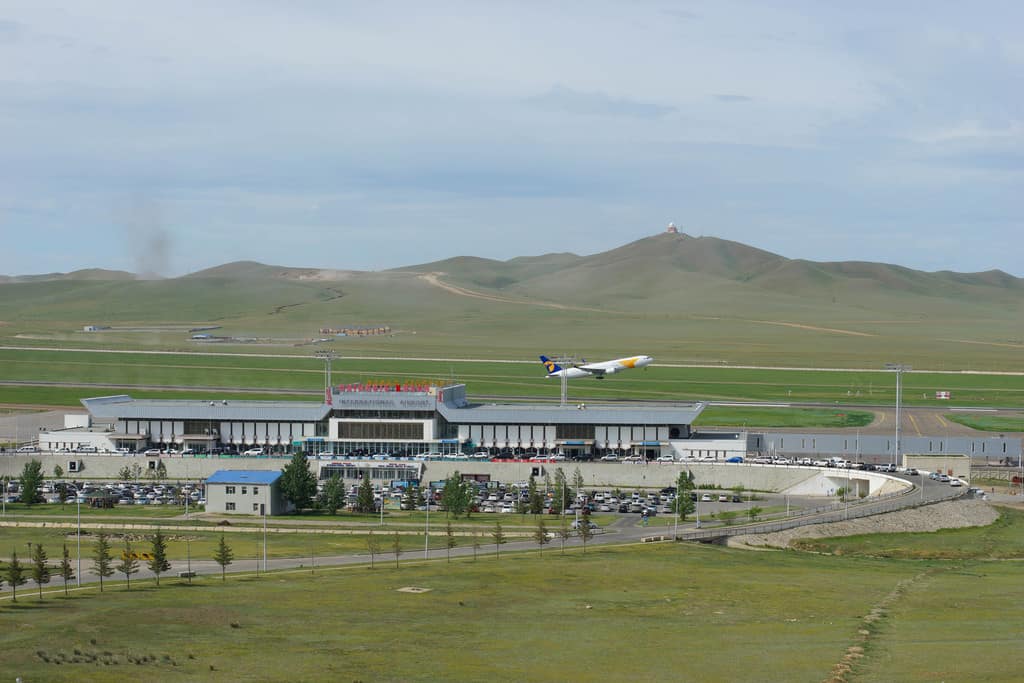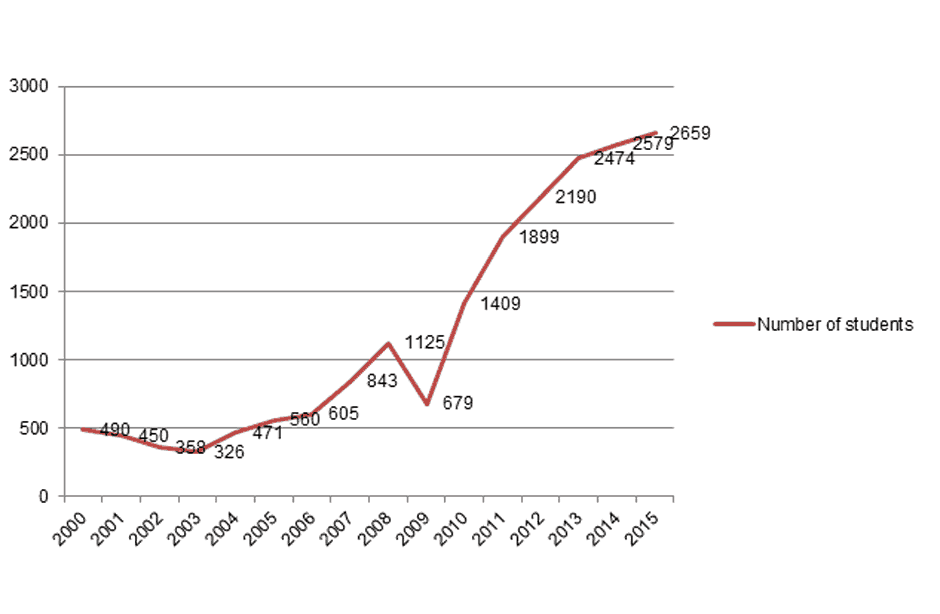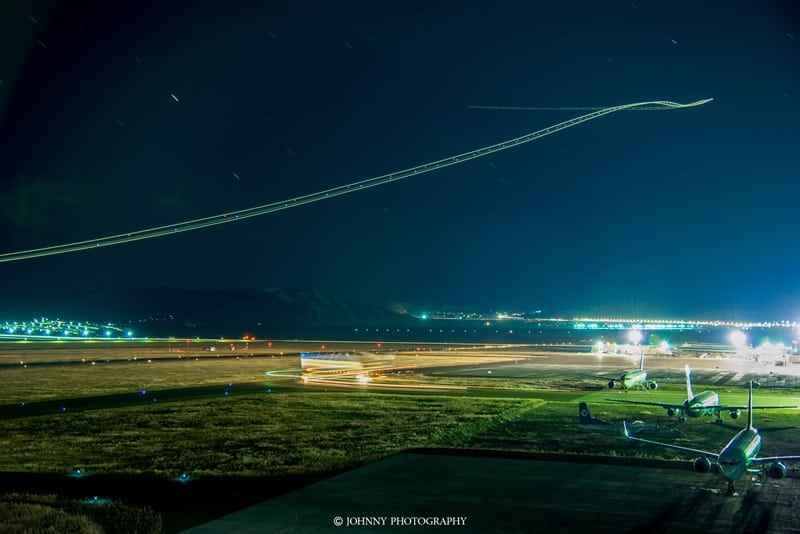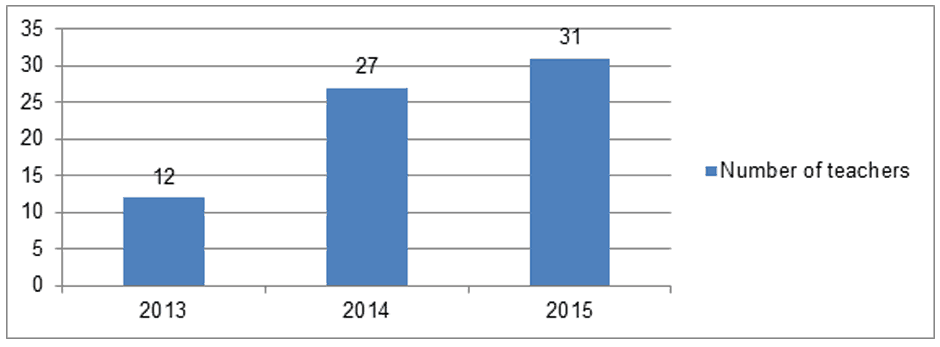Acquiring a method of learning is more important than being taught.
Having the right attitude is more important than being educated.
Having work skills is more important than being employed.
Using knowledge is more important than having knowledge.
FOREWORD
Around the world there is an entirely new generation whose development skills are based on the latest materials and information technology that is generated using everything from bio- to nano-technology. Current knowledge-based technological developments are a function of each nation’s development; the impact of innovation on worldwide development trends is inspired and determined by the development of States and the value placed on intellect and knowledge. Increasingly, States are eager to enhance education and to consider knowledge as a determining factor in supporting the economic and industrial capacity of nations.
The strategy of Mongolia’s Development Policy: Mongolian National Development for Knowledge-based Economic Development 2007-2021 has been to define the goals and objectives for the development of new technology and innovation based on knowledge, and for the last ten years they have implemented scientific, knowledge-based innovation in all economic and social sectors.
Within this strategy, the Mongolian Civil Aviation Authority’s Aviation Training Center has been tasked with providing information about the policies for recruiting and training human resources, the importance of development of the civil aviation sector, and the projects and programmes instituted for improving training activities, as well as the methods and further goals designed to support continuous development.
This Aviation Training Centre (ATC) is responsible for preparing the next generation for the Mongolian civil aviation sector and training and developing personnel by improving their knowledge and education. It has received Civil Aviation Rules Part-141 Aviation Training Organization Certification and is responsible for civil aviation training. It is the sole Associate Member of ICAO TRAINAIR PLUS Programme in Mongolia.

Building on its 37-year history, the ATC is committed to establishing a competency-based vocational education and training system that meets the demands of the labor market. To do so, the development of the knowledge and skills of its trainers in accordance with modern demands and needs, is paramount.
The Mongolian State Great Hural (Parliament) passed the Government Aviation Policy until 2020 to be able to develop the civil aviation sector as a trend-setting leader of social development in the country. This Policy was aimed at increasing the competency of Mongolian aviation personnel in the world market by building a professional human resource team with expanded knowledge, skills and experience, and whose objective was to create long-term sustainable economic development. The purpose of implementing these national programmes was to provide the basic conditions to develop human resources skills and knowledge, to provide professional re-qualification training, and to develop initial training for basic aviation professionals.
These Human Resource Development Programmes throughout the civil aviation industry have been approved by the Government of Mongolia and are being implemented by the Civil Aviation Authority.
The Aviation Training Centre, the implementation arm of the Human Resource Development Programme for the civil aviation industry, is responsible for a set of measures and priorities for capacity-building aimed at introducing advanced technologies and creating favorable conditions for headquarters to determine and reform policy management and ensure that professionals and teachers are specialized and experienced in this field.

DEVELOPING HUMAN RESOURCE CAPACITY
The Centre’s primary goal is to improve aviation safety and security, as well as to improve the productivity and efficiency of the organization through the development of human resources capacity. Priorities include:
- The Civil Aviation Human Resource Development Programme and the Re-qualification Training for Employers, Retraining and Skill Development Training Programme. These programmes have been approved as the basis for dealing with supply and demand issues in the industry and training needs. The programmes have been successfully implemented and are ongoing until 2020.
- The organization provides training for new civil aviation professionals to meet human resource needs, to improve knowledge and skills for personnel and to qualify and train them in hands-on practice in their field. The Centre is collaborating with aviation training organizations and universities in the Russian Federation, the United States, Canada, Australia, the Ukraine and Thailand to train new aviation professionals.
- As an Associate Member of the ICAO TRAINAIR PLUS Programme, the Centre has been reforming its training system since 2013 by introducing a competency-based training approach so that students will develop the appropriate attitude and a systematic set of knowledge and skills to bring to the workplace. Over the last four years, as a result of the creation of the conditions for providing new training techniques and the continuous development of instructors, trainee numbers have increased dramatically and training efficiency has improved markedly.

STRENGTHENING DOMESTIC TRAINING
Mongolians are a nomadic civilization. The number of people migrating to the city has increased dramatically in recent years. Industrialization and tourism development have required employers to search, first, for employment candidates with the right attitude and skill passions, second, with the potential skills and capability to learn and to develop and, third, with the required knowledge to carry out the tasks.
To prepare professionals to meet employer requirements and to improve the quality of training activities in the aviation sector in the face of these social and economic changes, the Aviation Training Centre of Mongolia has undertaken a number of initiatives. These include:
- Developing an “Aeronautical Information Management Specialist” Standardized Training Package;
- Collaborating, beginning in 2015, with universities and institutions in order to strengthen our local training activities, and establishing agreements with five universities to train 107 professionals;
- Since 2013, working to prepare instructors and teachers to develop capacity-based training programmes and to train them in the practice of capacity-building methods of training. Today, they compile training data and adjust teaching methods accordingly. The Centre has trained a total of 15 experts at the ICAO Training Developers Course for the preparation of standardized training packages to allow them to deliver capacity-based training in the area;
- Introducing modern aviation technologies to improve training effectiveness, exchanging the experiences of professionals and improving teachers’ knowledge and skills regularly by collaborating with foreign university teachers and professional aviation instructors.

BUILDING KNOWLEDGE AND SKILLS
A key to the success of any training organization is the ability to provide quality knowledge, deliver student innovation to society, and develop creative thinking skills.
According to Prof. Shyamal Majumdar, Ph.D (UNESCO-UNEVOC):
“Since education is considered the key to effective development strategies, technical and vocational EDUCATION and TRAINING (TVET) must be the master key that can alleviate poverty, promote peace, conserve the environment, improve the quality of life for all and help achieve sustainable development.”
If knowledge and education are the key to development, it can be said that training is the door to a nation’s development. The Aviation Training Centre is using a developed, integrated system that assesses training quality based on information technology in order to structure a quality learning process. The Centre employs a step-by-step process for qualifying instructors’ professional skills, and improving teaching facilities. Instructors are the key people in the process. They must be provided with research opportunities, good working conditions and an environment that encourages them to enhance their knowledge.

AIMS AND OBJECTIVES OF THE TRAINING CENTRE
Mongolia has the long-term goal of expanding the Training Center as an internationally recognized University of Aviation that trains and educates the basic aviation professional. In this case, our first step to achieve this goal will be allowing us to deliver all of our courses using competency-based training methods and to expand our cooperation with leading foreign educational institutions and universities and to implement joint programmes and projects to become a Full Member organization in TRAINAIR PLUS Programme. Being the best training centre in the region remains our short-term goal.
CONCLUSION
The Aviation Training Centre of CAAM has been developing training programmes that meet the standards and requirements for international educational institutions and civil aviation training organizations. The Centre operates using competency-based training methods to deliver skilled and talented human resources who can ensure aviation safety and security. The fact that the number of graduates of the Aviation Training Center has increased year by year, indicates that we have been successful in implementing our mission of training skilled professionals with the right attitude, high potential and knowledge. This has contributed significantly to our performance in the workplace and to making civil aviation a major profession in the labour market.
ABOUT THE CONTRIBUTOR
Anarzul Dorligsuren received her Masters of Business Administration from Strayer University and is the Senior Officer of Training Policy and Planning of the Aviation Training Centre of the Civil Aviation Authority of Mongolia, and the Manager of the Course Development Unit.

 Anarzul Dorligsuren received her Masters of Business Administration from Strayer University and is the Senior Officer of Training Policy and Planning of the Aviation Training Centre of the Civil Aviation Authority of Mongolia, and the Manager of the Course Development Unit.
Anarzul Dorligsuren received her Masters of Business Administration from Strayer University and is the Senior Officer of Training Policy and Planning of the Aviation Training Centre of the Civil Aviation Authority of Mongolia, and the Manager of the Course Development Unit.